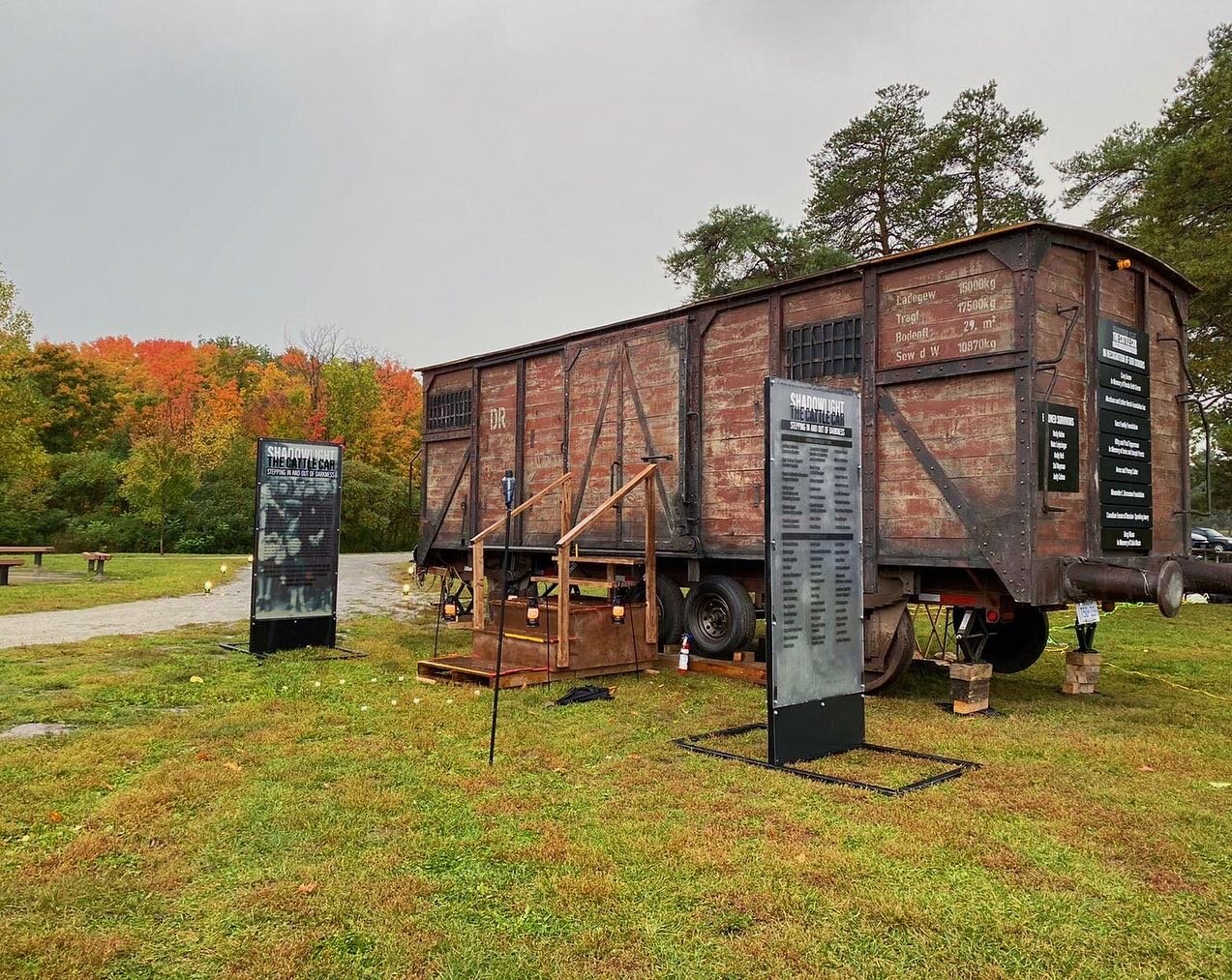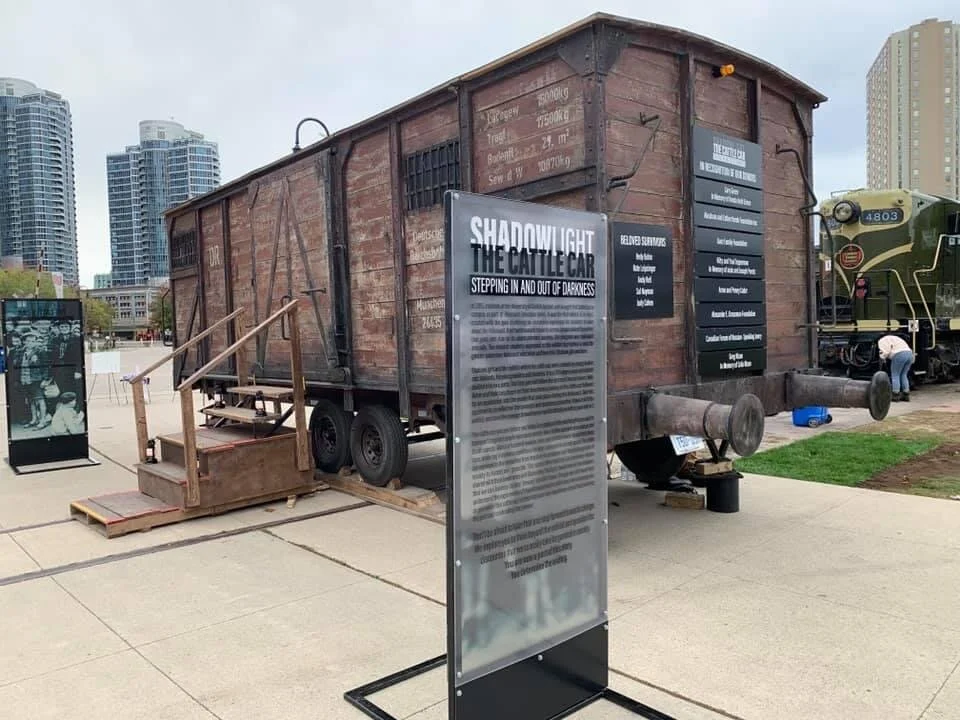Our Story
How one girl and one idea turned into an unstoppable Holocaust education organization
The Story of ShadowLight
ShadowLight originated for students, by students. It was conceived with the goal of providing an immersive and interactive educational experience for students so that they could empathize with the stories of suffering during the Holocaust, be able to connect the history to current prejudices and be infused with inspiration and a sense of responsibility to create a better tomorrow. It is often difficult for students, living in a different era and in a faraway location to connect to the stories of the Holocaust. However, sparking this connection is crucial if we are to build a better future. We must learn from the past.
As a first year student, in 2015, Jordana volunteered to be the Hillel Holocaust Education Week Chair at her university campus - the University of Guelph. Jordana and a group of her peers decided that they would locate a cattle car, like the ones used to transport Jews and other minority groups to concentration camps, labour camps and death camps during the Holocaust, and bring it to the university. After calling every rail company, Holocaust organization and museum in the country, Jordana almost gave up on her quest. As a last try, Jordana visited the Halton Country Railway Museum where she met a helpful volunteer. To her amazement, the volunteer informed her that he happened to pass an exact replica of a German cattle car on his way to work each day. After calling M.K. Picture Car Services, the owners of the cattle car, plans were underway to transport and place the car on campus to educate students.
Through the aid of Hillel Ontario, the University of Guelph who hosted and cared for the car, M.K. Picture Car Services who donated the car, and each of the students involved, The cattle car, was placed in the center of the University of Guelph campus in observance of Holocaust Education Week. In the two days that it was on display, it attracted more than 2,000 visitors. The walls were lined with pictures and words describing the unimaginable atrocities that took place during the Holocaust. Each wall represented a different era. As visitors progressed through the cattle car exhibit, so did the war. Some had never heard the word ‘Holocaust.’ All exited the cattle car changed, infused with knowledge, appreciation and purpose.
Recorded voices of Holocaust survivors were played throughout the cattle car. In these recordings, survivors shared their experiences being transported in a similar cattle car to the replica that visitors were standing in. This brought the history to life. Visitors heard the survivor describe their experience firsthand: the cramped space, the small windows draped in barbed wire, the darkness, the fear.
The final wall of the exhibit brought visitors to the current day – shocking images that show how the intolerance still persists. This exhibit drew attention to current issues that humanity faces In this way, we will ensure: Never Again.
Endless feedback on social media from those that visited the cattle car demonstrated the extent of its impact. The program was featured in news forums both online and in print, including all newspapers in Guelph, the Canadian Jewish News and CTV. The display created unprecedented interest in the topic. People want to learn more about the Holocaust and
To this day, the cattle car exhibit is a cherished part of the University of Guelph student experience. There is no doubt that these students, infused with purpose, will go on to take even one step forward in breeding tolerance.


